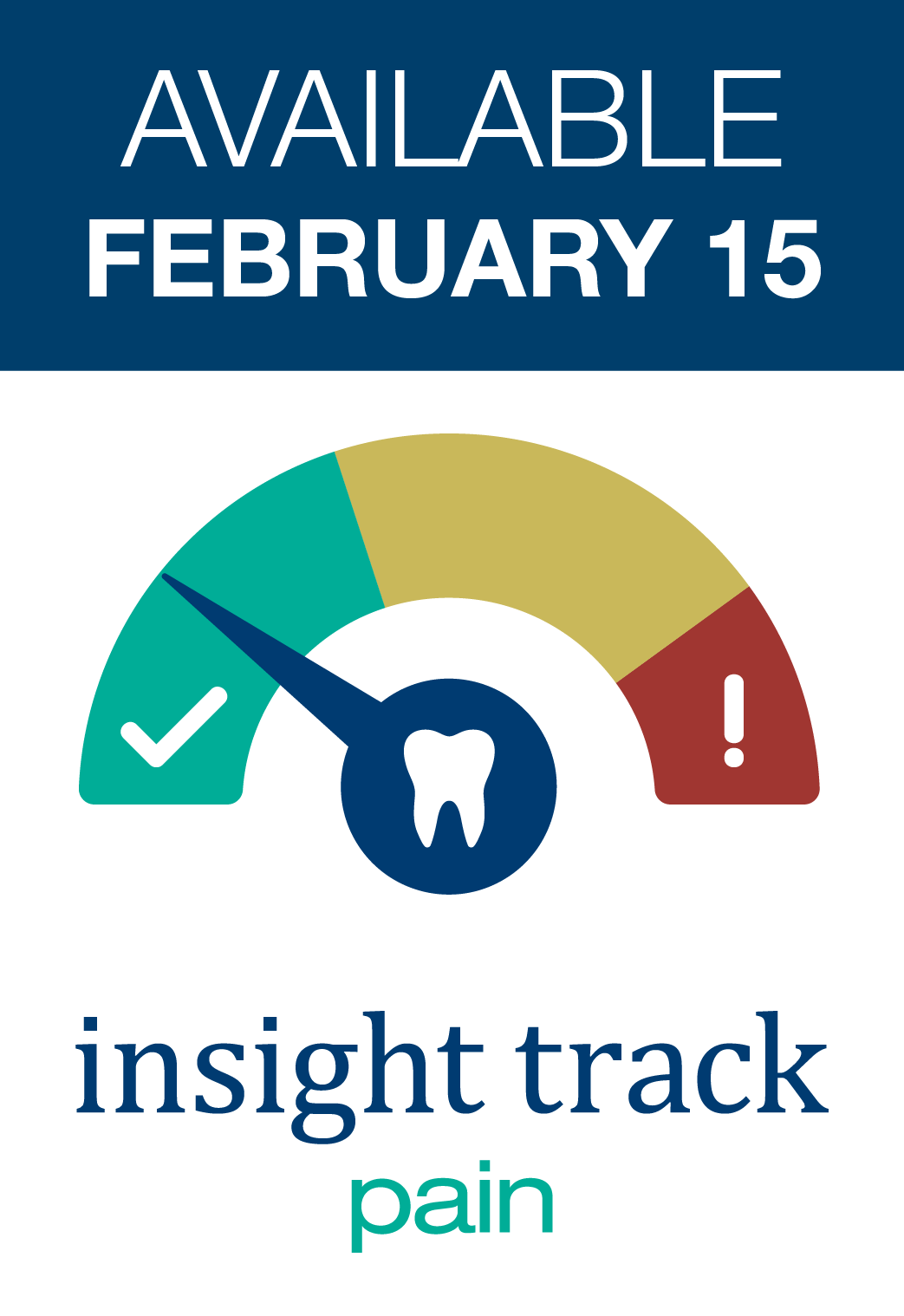

November 2-4, 2023 | Palm Beach Gardens, FL
Sessions from Insight Track: Pain will be available on February 15, 2024. Ensure you have a current Endo On Demand subscription to view these great presentations.
Insight Track: Pain
Refine your search results by using the drop-down menus below, or choose “Advanced Search This List.”
- Includes Credits
CE Hours: 0.75
Description: This session will provide participants with an understanding of how chair yoga can benefit dental health care providers physically and mentally, and how it can ultimately affect the quality of care they deliver to their patients. Participants will experience yoga in their chairs and learn how the health benefits of yoga can be accessed simply in any chair, anywhere.
Learning Objectives:
- Explore chair yoga as an accessible and beneficial self-care tool
- Interpret ways to incorporate chair yoga into your day
- Utilize simple practices to relieve stress and restore the mind and body

Christina Pastan, D.M.D.
Dr. Christina Pastan is an Assistant Processor of Clinical Endodontics and the Director of Mind-Body Wellness at Tufts University School of Dental Medicine. A 300-hour certified Kripalu yoga and meditation instructor as well as a Lakshmi Volker chair yoga instructor, Dr. Pastan teaches self-regulation skills through mind-body practices in a mandatory curriculum she developed for dental students that is threaded through the four years of their training. Her work also involves lecturing and guiding experiences in the mind-body practices of yoga and meditation, and how they assist in the development of the dental professional as well as support individual personal growth and stress relief. Dr. Pastan also maintains a private practiced limited to endodontics in Boston, MA.
Disclosure
In accordance with this policy, I declare that I have NO past or present proprietary or relevant financial relationship or receive gifts in kind (including soft intangible remuneration), consulting position or affiliation, or other personal interest of any nature or kind in any product, service, course and/or company, or in any firm beneficially associated therewith.
- Includes Credits
CE Hours: 1.25
Description: When a patient has persistent pain after root canal treatment it can be disruptive to a practitioner’s schedule and psyche. The first part of this two-part session will give practitioners a review of practice-based research outcomes on persistent pain, differential diagnosis for persistent pain following root canal treatment, pharmacologic management of persistent pain on the neurobiology of pain. The second part of the session will present cases of patients with persistent post-treatment pain, diagnostic and treatment considerations, and pharmacologic management, with opportunities for audience questions.
Learning Objectives:
- Discuss the frequency of persistent pain following root canal treatment based upon results of recent practice-based research.
- Discuss potential predictors of persistent pain following root canal treatment based upon results of recent practice-based research.
- Discuss a differential diagnosis for persistent pain following root canal treatment
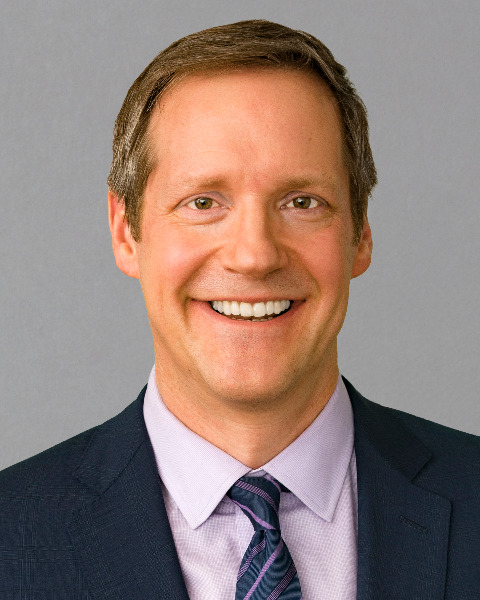
Alan S. Law, DDS, PhD
Dr. Alan Law received his Doctor of Dental Surgery and Certificate in Endodontics from the University of Iowa College of Dentistry, Iowa City, Iowa. He also completed his PhD, “Mechanisms and Modulation of Orofacial Pain”, with the Department of Pharmacology at the University of Iowa. Dr. Law has published over 40 articles in scientific and clinical journals, and has co-authored chapters on The Non-Odontogenic Toothache and Regenerative Endodontics in Pathways of the Pulp, and has lectured at over 300 local, national and international meetings. Dr. Law is a member the American Dental Association, American Association of Endodontics, and Omicron Kappa Upsilon Dental Honor Society, and a Fellow of the American College of Dentists and the International College of Dentists. He is a Past President of the American Association of Endodontists, Past President of the Minnesota Association of Endodontists, and Past President of the American Board of Endodontics. He is in full –time practice in the Twin Cities, and President of The Dental Specialists, a multi-specialty dental practice with over 35 specialists. He is also a Research Professor in the Division of Endodontics at the University of Minnesota.
Speaker Disclosure
In accordance with this policy, I declare I have a past or present proprietary or relevant financial relationship or receive gifts in kind (including soft intangible remuneration), consulting position or affiliation, or other personal interest of any nature or kind in any product, service, course and/or company, or in any firm beneficially associated therewith, as indicated: National Dental Practice-Based Research Network and the American Dental Association.

Karen Baker, BSRPh, MS
Professor Karen Baker has been on the Dental College faculty at the University of Iowa for over 40 years and occupies a unique role in dental practice and education. She is a clinical pharmacist with a Master’s degree in clinical pharmacology and therapeutics and is focused on patient-specific dental drug therapy. She has given well over 1000 invited programs nationally and internationally and holds memberships in many dental and clinical pharmacology and therapeutics organizations. Her dental education-based pharmacy and drug therapy consultation center is the only one in the United States. She has authored many articles and abstracts and lectures extensively in pre-doctoral and graduate courses at the University of Iowa.
Speaker Disclosure
I declare that I have no proprietary, financial, or other personal interest of any nature or kind in any product, service, course, and/or company, or in any firm beneficially associated therewith, that will be discussed or considered during the proposed presentation.
- Includes Credits
CE Hours: 1.75
Description: When a patient has persistent pain after root canal treatment it can be disruptive to a practitioner’s schedule and psyche. The first part of this two-part session will give practitioners a review of practice-based research outcomes on persistent pain, differential diagnosis for persistent pain following root canal treatment, pharmacologic management of persistent pain on the neurobiology of pain. The second part of the session will present cases of patients with persistent post-treatment pain, diagnostic and treatment considerations, and pharmacologic management, with opportunities for audience questions.
Learning Objectives:
- Discuss treatment options for managing persistent pain following endodontic treatment.
- Discuss pharmacologic management of persistent pain.
- Discuss how endodontists can work with facial pain practitioners to manage patients with persistent pain.

Alan S. Law, DDS, PhD
Dr. Alan Law received his Doctor of Dental Surgery and Certificate in Endodontics from the University of Iowa College of Dentistry, Iowa City, Iowa. He also completed his PhD, “Mechanisms and Modulation of Orofacial Pain”, with the Department of Pharmacology at the University of Iowa. Dr. Law has published over 40 articles in scientific and clinical journals, and has co-authored chapters on The Non-Odontogenic Toothache and Regenerative Endodontics in Pathways of the Pulp, and has lectured at over 300 local, national and international meetings. Dr. Law is a member the American Dental Association, American Association of Endodontics, and Omicron Kappa Upsilon Dental Honor Society, and a Fellow of the American College of Dentists and the International College of Dentists. He is a Past President of the American Association of Endodontists, Past President of the Minnesota Association of Endodontists, and Past President of the American Board of Endodontics. He is in full –time practice in the Twin Cities, and President of The Dental Specialists, a multi-specialty dental practice with over 35 specialists. He is also a Research Professor in the Division of Endodontics at the University of Minnesota.
Speaker Disclosure
In accordance with this policy, I declare I have a past or present proprietary or relevant financial relationship or receive gifts in kind (including soft intangible remuneration), consulting position or affiliation, or other personal interest of any nature or kind in any product, service, course and/or company, or in any firm beneficially associated therewith, as indicated: National Dental Practice-Based Research Network and the American Dental Association.

Karen Baker, BSRPh, MS
Professor Karen Baker has been on the Dental College faculty at the University of Iowa for over 40 years and occupies a unique role in dental practice and education. She is a clinical pharmacist with a Master’s degree in clinical pharmacology and therapeutics and is focused on patient-specific dental drug therapy. She has given well over 1000 invited programs nationally and internationally and holds memberships in many dental and clinical pharmacology and therapeutics organizations. Her dental education-based pharmacy and drug therapy consultation center is the only one in the United States. She has authored many articles and abstracts and lectures extensively in pre-doctoral and graduate courses at the University of Iowa.
Speaker Disclosure
I declare that I have no proprietary, financial, or other personal interest of any nature or kind in any product, service, course, and/or company, or in any firm beneficially associated therewith, that will be discussed or considered during the proposed presentation.
- Includes Credits
CE Hours: 1.5
Description: This course will give the participant an overview of TMDs and other orofacial pain conditions (e.g., neurovascular, neuropathic) as they relate to endodontic practice. This includes prevalence and the clinical presentation of TMDs and other orofacial pain conditions either mimicking endodontic pain or being a contributing factor to an endodontic patient’s chief complaint. The brief screening method for TMD pain that is useful in a busy endodontic practice will be presented. Differential diagnostic process that will help endodontists distinguish pain of endodontic origin from pain of TMD or other origin will be discussed.
Learning Objectives:
- Define four major clusters of non-odontogenic pain disorders. Compare prevalences of such disorders.
- Identify signs, symptoms, and examination findings that may indicate TMD or another non-endodontic pain condition as an etiology or a contributing factor of the patient’s tooth pain complaint.
- Utilize the brief TMD screening tool to identify those who may need a more thorough TMD examination. Reference and use the validated Diagnostic Criteria for TMD (DC/TMD) and International Classification of Orofacial Pain (ICOP) in differential diagnosis of non-odontogenic pain.

Iryna H. Daline, D.M.D., M.S.
Dr. Iryna Daline is a board-certified Orofacial Pain specialist and a board-eligible Endodontist. She completed her orofacial pain residency at the University of Minnesota and endodontic residency at the University of North Carolina at Chapel Hill. Her clinical and research interests include differential diagnosis, comorbidity, and treatment of endodontic pain and other orofacial pain conditions. She has received grants from the American Association of Endodontists, American Board of Orofacial Pain, International Association for Dental Research, and Dental Foundation of North Carolina to support her research bridging endodontics and orofacial pain. She has published articles in the Journal of Endodontics, Journal of Oral Rehabilitation, and Cephalalgia. Dr. Daline is a co-author of chapters on non-odontogenic pain in the 3rd edition of Seltzer and Bender's Dental Pulp and the 7th edition of Principles and Practice of Endodontics. She has been repeatedly invited to speak and share her expertise with both dental and endodontic professionals.
Speaker Disclosure
I declare that I have no proprietary, financial, or other personal interest of any nature or kind in any product, service, course, and/or company, or in any firm beneficially associated therewith, that will be discussed or considered during the proposed presentation. - Includes Credits
CE Hours: 1.0
Description: Endodontic flare ups remain a perplexing occurrence. Most often they are thought of as a clinical problem rather than a complex biological phenomenon. Patients presenting with comparable chief complaints, pulp/periapical diagnoses and medical/dental histories, usually receive the same treatment. However, varied responses to that treatment can be difficult to understand. Pain has been described as the most complex symptom that a human can experience. There is increasing evidence that factors, not often considered during a flare up, may play an important role in the biological processes involved in converting an essentially passive condition to one characterized by acute pain. The patient's genetics, immune system and sex may predispose them to pain. This presentation will review the potential of those factors to play a role during a flare up.
Learning Objectives:
- Identify factors that may predispose a patient to pain.
- Describe how the immune system may be a factor in patient's pain.
- Evaluate research concerning male and female experiences with pain.
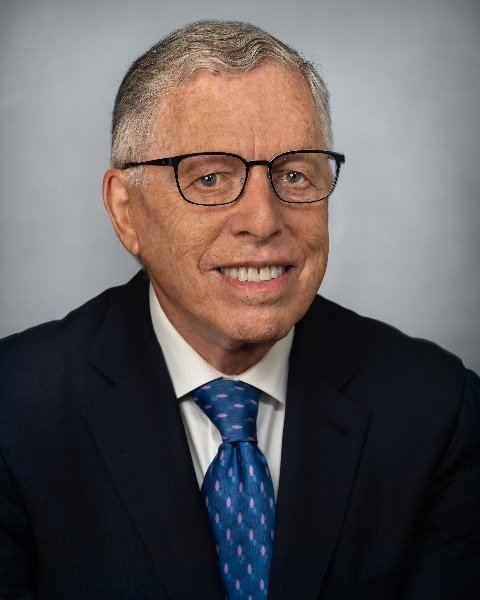
Paul Rosenberg, DDS
Dr. Paul Rosenberg served as Professor and Chair of the Department of Endodontics, Director of the Advanced Education Program and Director of the International Program, at New York University College of Dentistry from 1990-2012. He was Associate Dean for Graduate Programs from 2000-2005.
He is a past Director of the American Board of Endodontics 2002-2008 and was a member of the Scientific Advisory Board of the Journal of Endodontics. He has published extensively in journals and textbooks and has lectured nationally and internationally on Endodontic pain. His textbook titled, Endodontic Pain: Diagnosis, Causes, Prevention and Treatment, was published in 2014 by Springer.
In 2000 Dr. Rosenberg won the Distinguished Teaching Award, which is the highest award for teaching at NYU. In December 2007, NYU College of Dentistry unveiled a new facility, the Paul and Maxine Rosenberg Educational Wing in his honor, dedicated to providing post-graduate students with a facility devoted to their specific needs.
In 2017 Dr. Rosenberg received the I.B. Bender Lifetime Educator Award from the American Association of Endodontics. The award acknowledges contributions in the field of education.
Dr. Rosenberg continues to serve as a Professor in the Department of Endodontics.
Disclosure
In accordance with this policy, I declare that I have NO past or present proprietary or relevant financial relationship or receive gifts in kind (including soft intangible remuneration), consulting position or affiliation, or other personal interest of any nature or kind in any product, service, course and/or company, or in any firm beneficially associated therewith.
- Includes Credits
CE Hours: 1.75
Description: This presentation will first identify the potential problem in prescribing opioids for dental postsurgical pain and other painful dental conditions. The biochemical and physiological mechanisms behind post-surgical dental pain will be reviewed and a discussion of various double-blind randomized controlled trials on the efficacy of various analgesic agents following the surgical removal of impacted third molar teeth will take place. A discussion of the “drug seeking patient” and the prescription opioid abuse problem will be highlighted. The final portion of this discussion will focus on meta-analysis data for various analgesics in both dental pain and other post-surgical pain models. In other words, “Which analgesics consistently lead the pack and which are consistently dogs.” An updated flexible analgesic schedule which was published in JADA will finalize the program.
Learning Objectives:
- Explain the potential consequences of even short-term exposure to opioids.
- Compare the analgesic efficacy of NSAIDs to single entity oral opioids and acetaminophen/opioid combination drugs in randomized placebo controlled double-blind oral surgery pain studies.
- Summarize meta-analysis data of NSAIDs and opioid combination drugs on the numbers needed treat (NNT) to obtain one additional patient with at least 50% maximum pain relief.
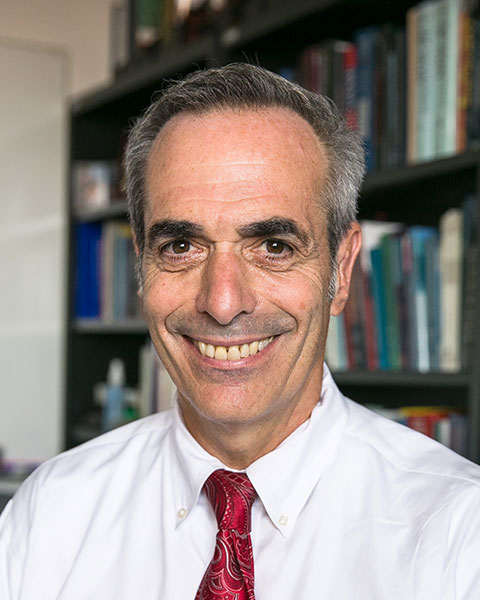
Elliot V. Hersh, D.MD, M.S., Ph.D
Dr. Elliot V. Hersh is currently a professor of pharmacology/oral surgery at the University of Pennsylvania School of Dental Medicine. He received his D.M.D. degree from New Jersey Dental School UMDNJ in 1981 and his M.S. and Ph.D. degrees from UMDNJ – Graduate School of Biomedical Sciences in 1983 and 1988 respectively. Since arriving at the University of Pennsylvania in 1988, Dr. Hersh has won the Dental School’s Excellence in the Teaching of Basic Science Award 22 different times and was also presented with a University Lindback Award in 1993, the highest teaching honor in the entire university. He has published more than 150 scientific articles, abstracts and book chapters in the areas of dental pharmacology, drug interactions, analgesics and local anesthetics. His scholarly and research contributions in the areas of local anesthesia and pain control were recognized by the International Association of Dental Research in 2007 when he was presented with the Distinguished Scientist Award in Pharmacology, Therapeutics and Toxicology. “While the research accolades are nice, the most important thing I do is sharing this knowledge with my students and other dental professionals."
Disclosure
In accordance with this policy, I declare I have a past or present proprietary or relevant financial relationship or receive gifts in kind (including soft intangible remuneration), consulting position or affiliation, or other personal interest of any nature or kind in any product, service, course and/or company, or in any firm beneficially associated therewith, as indicated below: Bayer Pharmaceutical (Grant/Research Support).
- Includes Credits
CE Hours: 1.0
Description: This presentation will evaluate current best practices relative to the administration of local anesthesia for endodontic treatment and pain management. The future of local anesthesia will also be discussed and explored.
Learning Objectives:
- Describe the current best practices and protocols for achieving effective local anesthesia for endodontic treatment.
- Utilize findings from the current literature to make evidence-based clinical decisions regarding administration of local anesthesia for the management and prevention of odontogenic pain.
- Summarize new concepts and ideas regarding the future of local anesthesia and pain control.
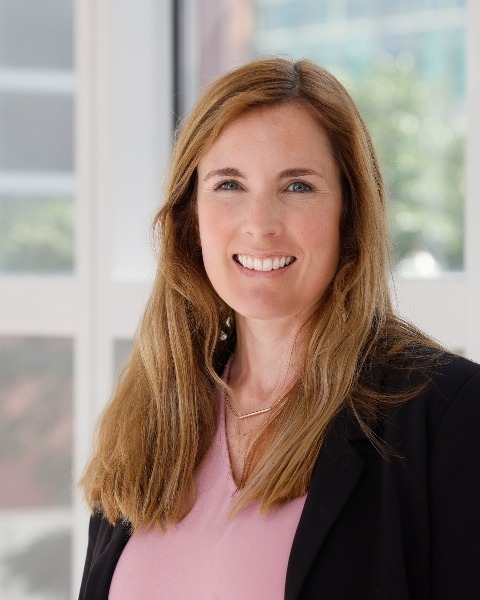
Sara Fowler, DMD, MS
Dr. Sara Fowler received her DMD from the University of Nevada Las Vegas School of Dental Medicine, a graduate of the school’s inaugural class. A native of Columbus, Ohio, Dr. Fowler returned to complete post-graduate training at The Ohio State University College of Dentistry, first with a General Practice Residency, followed by Endodontic Fellowship, and Advanced Endodontic Residency. After working in private practice, Dr. Fowler returned to teach at Ohio State and is now an Associate Professor with tenure in the Division of Endodontics. She is the director of Predoctoral Endodontics and the Emergency Dental Care Clinic, maintains private practice in the Ohio State Dental Faculty Practice, and actively participates in teaching and research with the Advanced Endodontic Residency Program.
Disclosure:
In accordance with this policy, I declare that I have NO past or present proprietary or relevant financial relationship or receive gifts in kind (including soft intangible remuneration), consulting position or affiliation, or other personal interest of any nature or kind in any product, service, course and/or company, or in any firm beneficially associated therewith.
- Includes Credits
CE Hours: 1.75
Description: The diagnosis and treatment of dental pain is fundamental to the practice of endodontics. However, there can often be a disconnect between the experience of pain in a patient and the presence of clinical disease. Teeth are uniquely innervated and cause severe pain and sensitization of the nervous system, even when there is minimal or no pathology in the pulp. Sensitization can lead to a confusing presentation of symptoms and complicate determining the diagnosis. Furthermore, persistent pain can occur even after successful endodontic treatment, due to changes in the nervous system that have been triggered by the original injury to the pulp. Endodontic materials, including sealers, can injure nervous tissues. In this presentation, we will review the current science underlying clinically relevant issues relating to pain and provide practical guidelines for minimizing risk for chronic pain after routine endodontic treatments
Learning Objectives:
- Explain how the unique innervation of the dental pulp can lead to peripheral and central sensitization.
- Explain how sensitization can impact endodontic diagnostic testing.
- Recognize how treatment planning decisions can reduce risk for chronic pain.
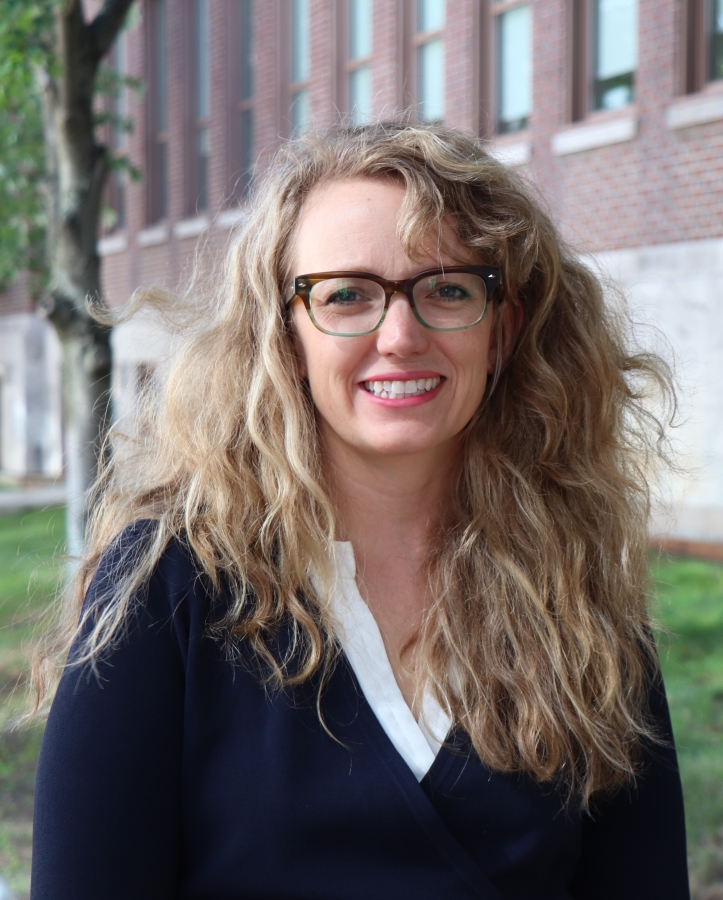
Jennifer L. Gibbs, MS, DDS, PhD
Jennifer L. Gibbs, M.A.S, D.D.S., Ph.D. is Director of the Endodontics Division and Program Director of Advanced Graduate Education Program in Endodontics and an Associate Professor at Harvard School of Dental Medicine
Dr. Gibbs received her dental degree and her Ph.D. in Pharmacology from the University of Texas Health Science Center San Antonio. She then completed a certificate in Endodontics and an M.A.S. in Clinical Research from the University of California San Francisco, as well as a postdoctoral training period. She is now a full time faculty at Harvard.
Dr. Gibbs heads a translational research group focused on understanding the neurobiological mechanisms of orofacial pain with a focus on dental pain, and patient centered outcomes of endodontic treatments. She teaches clinically in the advanced graduate Endodontic Program and lectures to both post-graduate and pre-doctoral students. Dr. Gibbs cares for patients at the Faculty Practice at Harvard. She is a past Educator Fellow of the American Association of Endodontics.
Disclosure
In accordance with this policy, I declare that I have NO past or present proprietary or relevant financial relationship or receive gifts in kind (including soft intangible remuneration), consulting position or affiliation, or other personal interest of any nature or kind in any product, service, course and/or company, or in any firm beneficially associated therewith.
Disclosure
All speakers must disclose to the program audience any proprietary, financial or other personal interest of any nature of kind, in any product, service, source and/or company, or in any firm beneficially associated therewith that will be discussed or considered during their presentation. The AAE does not view the existence of these interests or uses as implying bias or decreasing the value to participants. The AAE, along with ADA CERP, feels that this disclosure is important for the participants to form their own judgment about each presentation. Please see each individual speaker's information within a session for disclosure information.
Speakers can select which components of their presentation they would like included on Endo On Demand, and as a result, some courses may only include a handout, audio, audio and handout, or have portions of their presentation omitted. Courses that have only a handout and/or audio do not include the online CE option. Courses with multiple speakers may have some portions omitted from the presentation if not all speakers give permission to have their content posted.
| Access Date | Quiz Result | Score | Actions |
|---|


